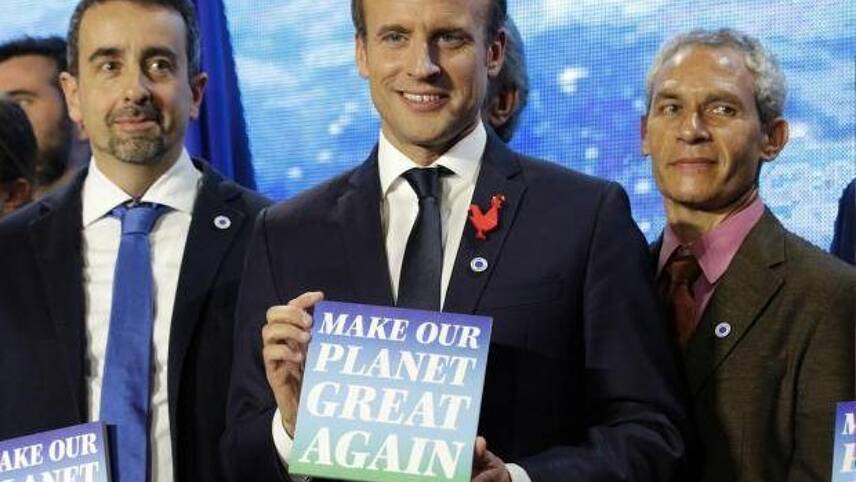Register for free and continue reading
Join our growing army of changemakers and get unlimited access to our premium content

While several Tory MPs dispatched strikingly similar Tweets during an episode of Blue Planet this week, a plan was being hatched in Downing Street. Tired of her interminable European headache, Theresa May’s Cabinet launched a green policy package to reaffirm its credentials as a working government, only for it to be greeted as a simple PR exercise. Whether ours will be the greenest of Brexits remains to be seen.
On the other side of the pond the Trump Presidency fails not to disappoint those who worked masterfully to marshal the Paris agreement – by maintaining threats to withdraw from it unilaterally and unceremoniously. The fact that the architects of the agreement had the foresight to ensure that an American President could only do so if elected a second term gives a small breath of relief.
The axis of leadership on climate has undoubtedly changed, old kings having forfeited the high ground.
Against the backdrop of an almost existential threat, the Paris agreement is driving increased investment in renewables. According to the International Finance Corporation $1 trillion is currently invested in renewables globally. Some 84% of companies are “actively pursuing or considering purchasing renewable energy over the next 5-10 years” and even oil giants are creating new renewable energy divisions backed by billions of dollars.
Six EU countries (including Greece and Hungary) have met their climate change targets early. China, the new Prince in our global climate drama, has already met one of its four main climate change goals. Some 50 countries will be 100% renewable by 2050 including Germany, which is impressively powered by 85% renewable sources.
The higher bar of performance is creating higher expectations, particularly with the biggest global group – millennials. A British Council study of 11,000 of the cohort found “sustainability, climate change and the environment” amongst top priorities. In oil rich Gulf countries 92% of those under 29 feel the climate is more under threat today than it was in the past.
New leaders are emerging in the battle against climate change. And it’s cities and corporates, rather than national governments, who are rising to the challenge.
Pushing forward the ambition behind Paris are a vanguard of companies who have asked and are answering a simple question: what do we practically need to do to keep temperature rises within 1.5°C? (Beyond the 2°C formally agreed in Paris). British businesses, backed by the Carbon Trust, have set out their practical plans to do just that, with France and Germany backing similar ambitions.
From London to Beijing, Mayors are making climate progress key to their platforms in the face of intransigence at a national level. In a city increasingly blighted by pollution, London Mayor Sadiq Khan has introduced the T-charge to get diesel vehicles off the road. He joins a club counting Los Angeles, Barcelona and Cape Town amongst its members. In another city world renowned for its pollution problem, Mayor Cai Qi has introduced Beijing-wide pollution targets. And Anne Hidalgo plans for cars on Parisian roads to be totally electric by 2030.
The bar is being raised and new actors are leading the charge for change. What role for those who want to share the crown of leadership?
With the changing dynamics of climate action from national governments, the general public looks increasingly towards corporates for leadership on climate. One in five surveyed by the Guardian believe business should take primary responsibility for tackling climate issues.
As an uncertain 2018 beckons, there are three lessons for those seeking climate leadership:
- Join the renewable revolution. Better yet, spell out how investment and commitments will help cities and countries deliver renewables at scale.
- Partner with the vanguard. Companies looking to raise the bar of ambition further with 1.5°C commitments need collaboration with other corporates to drive momentum behind this important movement. This will drive a political will to build on the achievements of Paris.
- Localise. Showing how commitments will help countries meet targets is critical. But we are missing an opportunity to show how commitments can help cities do the same, particularly though smart city technologies. Mayors will be increasingly important on the global climate change stage and helping deliver their agendas will be equally as important for delivering progress.



Please login or Register to leave a comment.